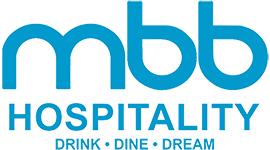
Running a restaurant presents numerous challenges and intricacies. There’s always something that requires attention in the restaurant business, making it a never-ending endeavor. Effective organization, in-depth analysis, problem-solving, solution development, and recommendations for long-term improvements are essential. A skilled restaurant consultant plays a crucial role in addressing these multifaceted challenges. From culinary strategy to kitchen management, menu planning, rebranding, and more, a restaurant consultant can significantly influence a restaurant’s journey to success.
What Is a Restaurant Consultant?
In its simplest form, a trained restaurant consultant specializes in providing expert advice and guidance to restaurants seeking to enhance their culinary operations, efficiency, and overall dining experience. These professionals collaborate closely with restaurant owners to identify the most significant challenges they face. In some cases, restaurant owners may not be fully aware of the issues impeding their business, but a restaurant consultant can help shed light on them.
Following the initial assessment, a specialized restaurant consultant develops tailored solutions while improving various aspects of the restaurant’s culinary operations. Their ultimate goal is to set achievable objectives and enhance the overall dining experience for their clients.
Examining a Restaurant’s Culinary Processes
The process begins with a comprehensive examination of the restaurant’s current culinary and operational status. This encompasses the entire spectrum, including kitchen management, menu planning, sourcing, and other culinary aspects. This part of the process can be time-consuming due to the comprehensive nature of the assessment.
Additionally, restaurant consultants engage in discussions with restaurant owners to understand the biggest challenges and culinary goals. This dialogue helps the restaurant consultant gain insight into the restaurant’s objectives for their assistance.
Subsequently, they analyze all aspects of the restaurant’s culinary operations, resources, and performance to identify areas for improvement.
Addressing the Culinary Challenges
After completing the in-depth assessment, restaurant consultants highlight and describe to restaurant owners the culinary issues and challenges they’ve identified that are hindering success. The list of identified problems can be extensive, ranging from kitchen inefficiencies and sourcing challenges to issues in menu planning, customer experience, or marketing strategies.
Following this, the consultants craft custom-made solutions designed to address the identified culinary challenges. These solutions may involve kitchen reorganization, menu enhancements, sourcing improvements, or implementing alternative culinary techniques.
Putting It into Culinary Practice
Subsequently, restaurant consultants typically collaborate with the restaurant’s owners and culinary team to implement the proposed solutions. They provide guidance throughout the process, ensuring the smooth implementation of recommended changes and delivering appropriate training and support to all culinary stakeholders.
To ensure the effectiveness of their culinary recommendations and plans, consultants collect data and metrics that enable them to measure the impact of their work. These metrics include customer feedback, revenue metrics, and other data points that facilitate a comprehensive evaluation of the changes they’ve suggested. This data-driven analysis enables consultants to make informed culinary decisions and adjustments when necessary. A proficient restaurant consultant is open to adapting their plans as the data suggests improvements.
Comprehensive Culinary Results
Restaurant consultants often create detailed, comprehensive reports and presentations that encompass their findings and proposed culinary solutions. These reports also outline the potential benefits of implementing these solutions. Upon completion, these documents are typically presented to the restaurant’s management or culinary stakeholders.
Many times, restaurants struggle due to inadequate culinary management. Culinary consultants address this issue by creating and implementing new culinary strategies or processes, often requiring changes to the restaurant’s culinary approach.
Consultants assist in managing these culinary changes, addressing any resistance, effectively communicating changes, and ensuring alignment and motivation among the culinary team to adopt new culinary approaches.
Consultants may also establish mechanisms for continuous culinary monitoring and improvement, enabling their clients to optimize their culinary operations and remain competitive in the ever-evolving culinary industry.
Depending on the specialization of the restaurant consultant, they may focus on specific aspects of restaurant management, such as kitchen operations, menu development, sourcing, or customer experience. Their dedicated culinary expertise allows them to provide targeted and effective advice and solutions.
Conclusion
One of the primary advantages of engaging a culinary advisor is their external perspective. They can identify culinary issues that restaurant owners might not be aware of, and their expertise extends beyond the specific restaurant they’re assisting. Culinary consultants have deep knowledge of culinary trends, customer preferences, and local competition. They can analyze both the big picture and finer culinary details for their restaurant clients.
A restaurant consultant fulfills multiple roles, but ultimately, they serve as trusted culinary advisors who collaborate closely with restaurants to identify significant culinary challenges, devise solutions, guide clients toward culinary success, and make necessary culinary adjustments along the way.


Leave a Reply